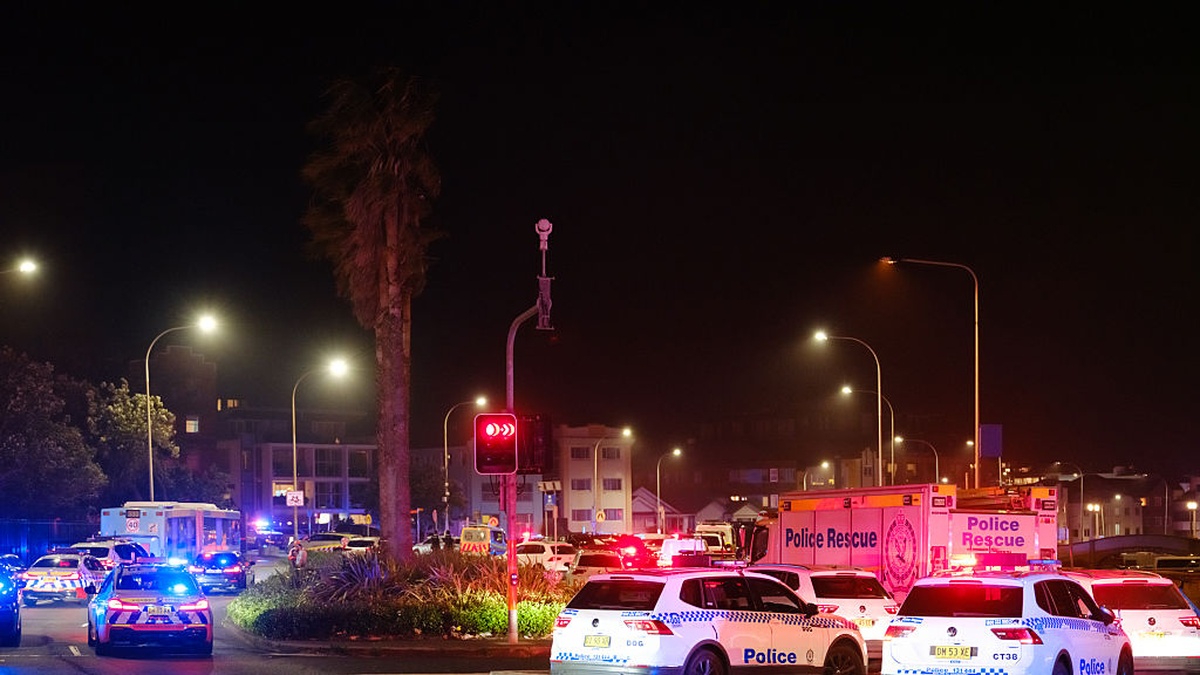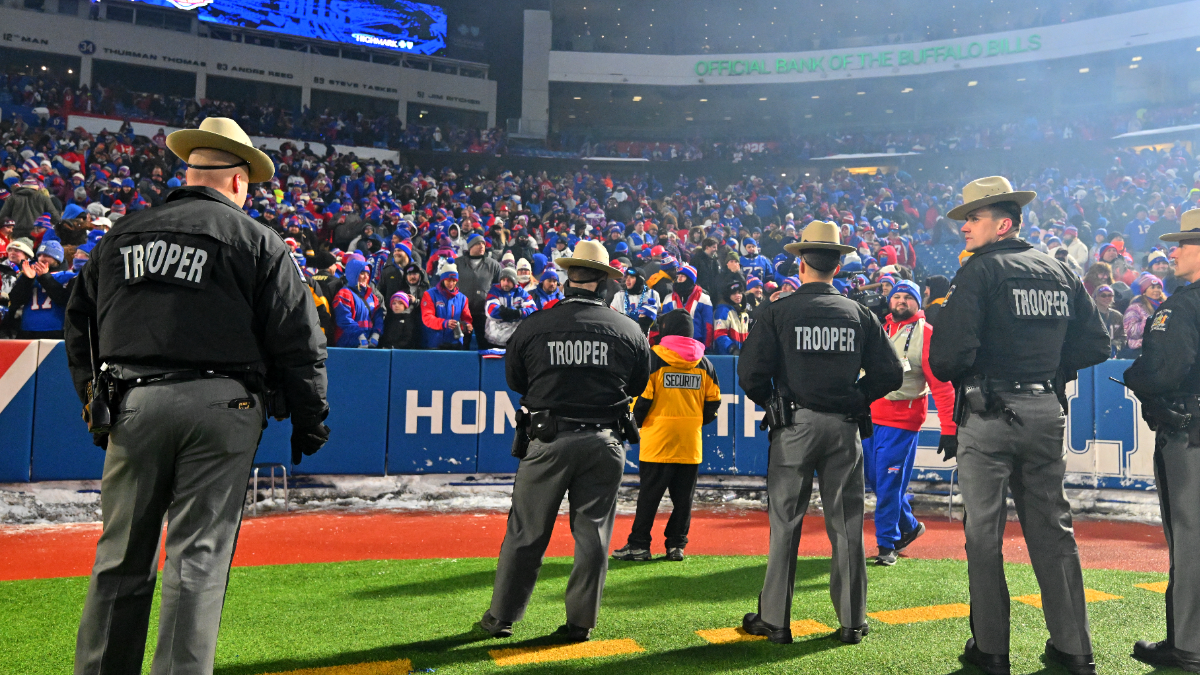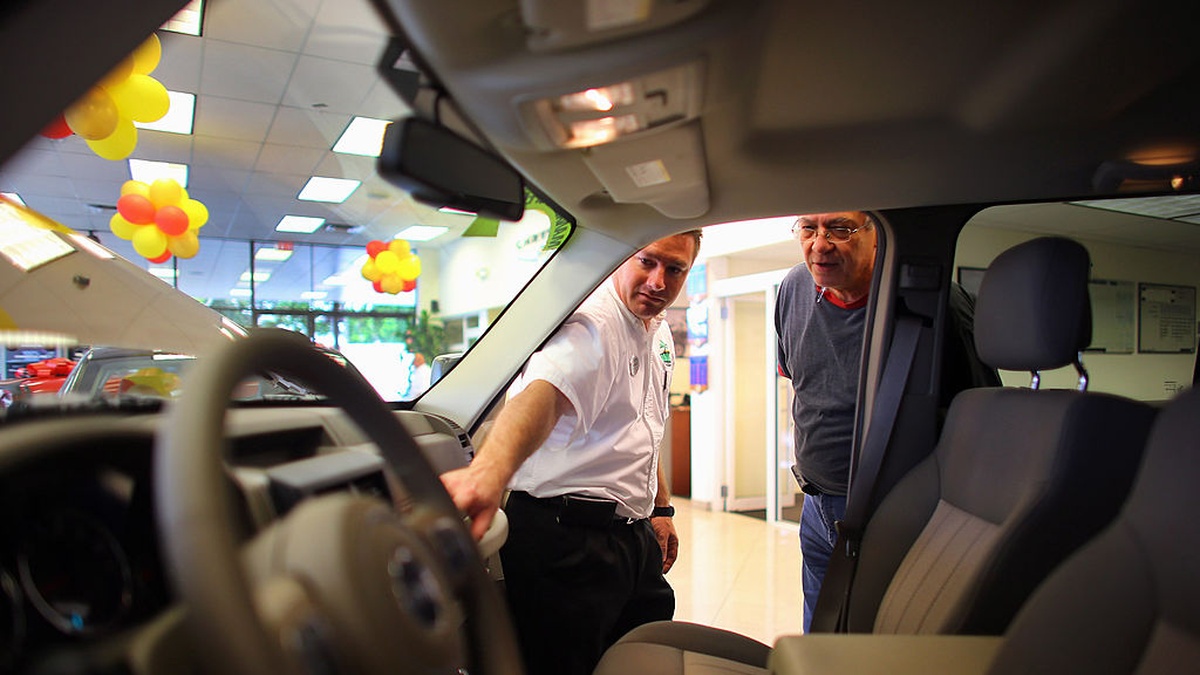
Six episodes were provided prior to broadcast.
I’ll be honest – there was a time when USA, with its blithely blue-skies formula for original programming (if you don’t know what I mean, try to find one conflict in all of Royal Pains or Satisfaction that can’t be summarized as a first-world problem), barely cut it as a footnote in discussions of dramatic television. But then along came Mr. Robot last year to completely change the game, demonstrating more conceptual daring and narrative innovation in its 10-episode first season than most series on higher-brow networks manage in their entire runs.
That Golden Globe-winning hacker drama is one hell of a tough act to follow, and perhaps it’s unreasonable to hold the network’s newest, sci-fi action-drama Colony, up against it. But such comparisons are inevitable, so it’s probably best to get this out of the way quickly: in the wake of Mr. Robot, Colony represents far more of a return to form than an ambitious expansion of USA’s dramatic range.
Despite hailing from Lost‘s Carlton Cuse, and sporting a deeply promising premise (it’s set in Los Angeles a year after an extraterrestrial takeover), the series is a decidedly simple-minded, on-brand venture into sci-fi – and though that’s disappointing for viewers still searching for the next Battlestar Galactica, it doesn’t quite justify sounding a death knell.
Given Cuse’s involvement, it probably shouldn’t be surprising that Colony takes a long time to introduce its various plot elements – indeed, even six episodes in, many of its big questions have only been addressed sparingly, and one gets the sense that the show is consciously trying to stay enigmatic for as long as possible. This approach sometimes intrigues but also exasperates – its attempts to build serialized mystery feel rather formulaic and certainly half-formed, teasing an overarching game plan it’s easy to see hasn’t been totally nailed down.
Still, a few of the creative choices provoke interesting questions. The aliens remain entirely unseen – their will is enforced by a brutal armada of human soldiers called red hats, and their commands are carried down by a hierarchy of collaborating humans who live in the so-called Green Zone, an upper-class region of L.A. cordoned off from the rest of the city. Odd, on-the-nose historical references abound, from Nazi-occupation curfews to that Iraq War shout-out.
Other residents live in “the flats,” struggling to survive an onslaught of peacekeeping drones and red hats while gazing up at massive walls that divide the city into segregated “blocs.” Why the aliens are so insistent on policing every aspect of their subjects’ lives, and what they’re really after from the people of Earth, are also both understandable questions with frustratingly far-off answers.
For the show’s protagonists, the all-encompassing menace of enemy occupation has become a part of everyday life. Will Bowman (Josh Holloway, providing a visual throwback to Lost that complements Cuse’s behind-the-scenes work) is a family man with ties to both the Army Rangers and the FBI, who has managed to survive the purge of well-trained military guys that we’re told happened shortly after the takeover.
Along with wife Katie (Sarah Wayne Callies), he’s grieving the loss of their younger son Charlie, who was separated into a different bloc during “the Arrival,” and remains focused on trying to smuggle himself through the wall to go look for him. When he’s nabbed, however, Will finds himself recruited by the alien regime to hunt down members of a guerilla resistance. And resentful of his new overlords as Will might be, the promise of being reunited with Charlie keeps him in check. The twist (which you almost certainly saw coming): Katie is a member of said resistance suddenly torn between supporting her husband and feeding information from him back to her co-rebels.

On paper, Colony has a lot of potential. Its alternate-present America setting could eventually toe the line between strange and familiar in a dramatically fruitful manner (the series could take lessons from Amazon’s The Man in the High Castle), and Holloway is resolutely solid in the leading role. And though shows about resistances taking on hostile alien rulers are numerous, from Falling Skies and V, this one’s focus not on the overlords but on the struggles between rebel fighters and human collaborators adds some moral complexity to the mix. More broadly, Colony demonstrates a desire for social commentary, and if it’s smart with its storytelling, the series could develop the red hats as an effective analogy for America’s militarized police system, and drones as a creative take on government surveillance.
At this early stage, though, Colony‘s presentation and its internal logic feel noticeably disjointed and thinly sketched. Though the invading extraterrestrials have such advanced technology and military cunning at their disposal that they’ve managed to subjugate humankind within a year of their arrival, tracking down a radio revolutionary named Geronimo is somehow beyond their capabilities. And inexplicably, resistance members are able to meet publicly without ending up on the receiving end of a drone’s laser fire, despite those same drones responding to reports of unrest in 98 seconds flat.
Moreover, the whole tone of the series seems vaguely off – the Bowmans live in a beautiful suburban home, still sending their kids to school and reporting for their day jobs, and the people around them exhibit fairly consummate normalcy aside from occasionally, inconsistently grumbling about food and resource shortages (a minor character has diabetes and needs insulin, now a rare commodity, but that plot point is abandoned almost as soon as it pops up).
For a city supposedly under the thumb of a totalitarian enemy race, everything seems too ordinary, too easy – in place of the creeping horror and heightened paranoia one would expect from such a thoroughly transformed reality, there are just occasional shrugs of what-are-you-gonna-do dissatisfaction. The majority of the humans on Colony, it appears, surrendered their freedom almost immediately and have spent the year since the aliens’ arrival immersing themselves in a brave new world. If further explained, that approach could work, but all it currently suggests is a failure on the writers’ parts to really think through certain aspects of the show’s setup.
Perhaps to cover up the holes in its overarching premise, Colony tacks on a case-of-the-week structure, creating a ludicrously useless police department within which Will works with a criminally underdeveloped partner (Carl Weathers) to track down the rebels and enforce the will of an enterprising bloc leader (Peter Jacobson). But watching the pair chase down leads is as tiresome as it sounds, and especially as both Will and Katie grow further ensnared in the resistance’s attempts to destabilize L.A.’s oppressive regime, the cop procedural angle only serves to deflate the series’ narrative tension. There’s a better version of Colony‘s story to be told that fully engages with its moral quandaries and political overtones, but what’s currently on display is agonizingly reluctant to buy into its more original aspects, choosing instead to drown them out with unnecessary formula.
Not helping matters is the severely undercooked dynamic between Will and Katie. At its worst, Colony is the kind of drama that expects us to buy the unending love its central couple shares by simply tossing a few extraneous (though admittedly steamy) scenes of them getting it on, without ever contextualizing that passion with relatable dialogue or non-carnal interaction. The same sort of lazy characterization carries over to pretty much every player in the show’s sandbox, with the Bowmans’ rebellious teen son (Alex Neustaedter) maybe suffering the most. But if audiences are to invest in these characters’ struggles to survive, the unvarnished truth is that they first need to start showing some kind of pulse. The same really goes for Colony as a whole. It wants to succeed as a bold, bracing new drama laden with rich mystery and moral turpitude; but as it stands, the show rarely displays any signs of creative intelligence – let alone dramatic life.










Published: Jan 11, 2016 11:36 pm